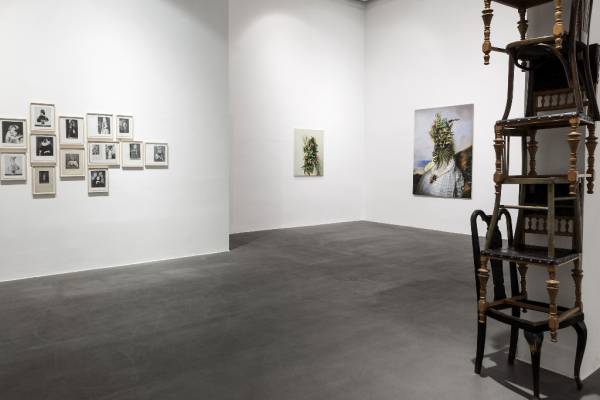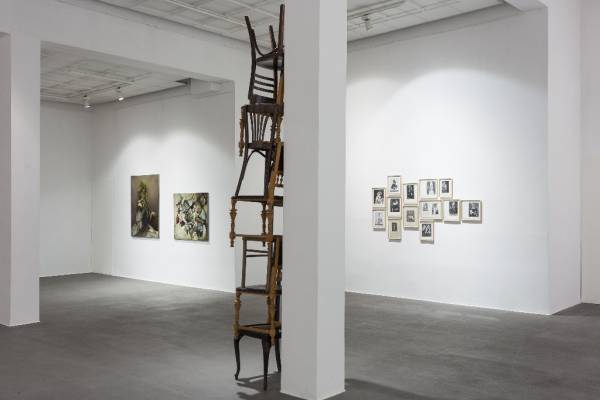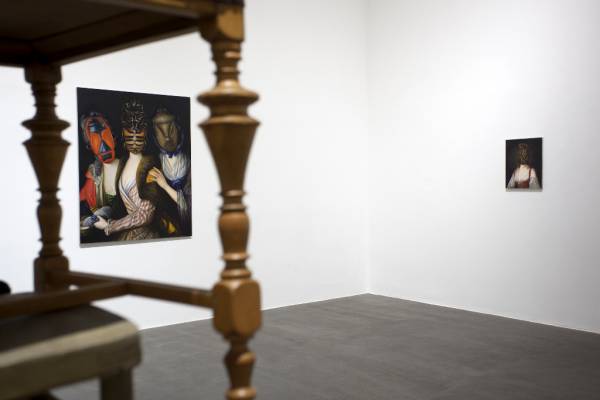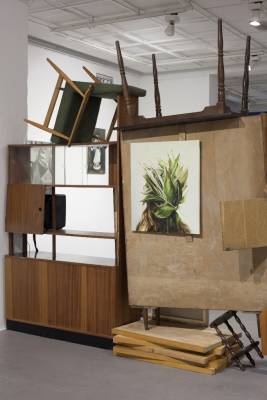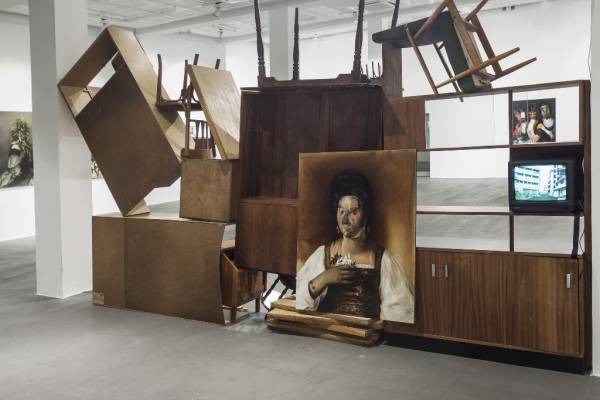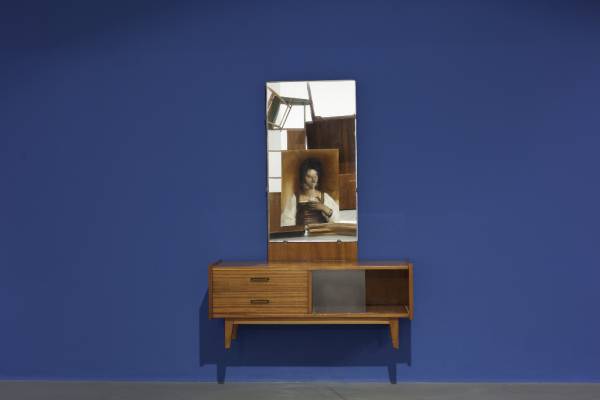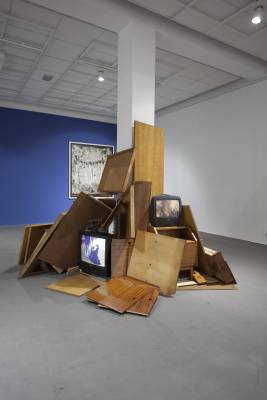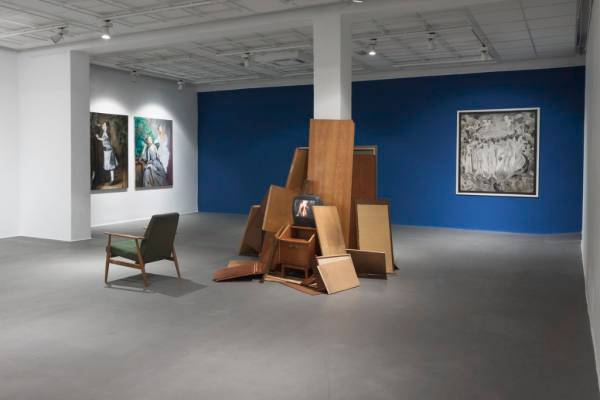EWA JUSZKIEWICZ | THE DESCENT BECKONS
Solo exhibition
4 September – 11 October 2015
vernissage: Friday, 4 September 2015, 7 pm
Bielska BWA Gallery
Bielsko-Biala, Poland
curator: Agnieszka Rayzacher
Ewa Juszkiewicz’s dialectic between creation and destruction has been present in her creative activity since 2012 when she started her cycle based on old masterpieces created between the Renaissance and the 19th century. The artist characteristically draws her inspiration from portraiture, especially the female portrait. She processes, i.e. destroys and recreates, familiar female portraits by depriving them of their obviousness and familiar order, and thus creates her own galleries of new images. Juszkiewicz builds a new narrative by transforming, fragmenting, or changing the context of her selection of works. portrait and the position of the sitter.
This cycle brings to mind the question of a mask which, according to Hans Belting, transforms the human body into an image. In this respect, the artist creates a unique “aggregate” image encompassing the original painting, the work created by Juszkiewicz, and the image produced by applying a mask on the face of the portrayed character.
The new cycle of paintings has been created especially for the exhibition at Galeria Bielska BWA, and is based on the works of art considered missing or lost to theft, fire or war. As with the previous paintings, Ewa Juszkiewicz based her recent work solely on photographs, except that this time she used mostly poor quality, black and white photos, which she had traced in archival materials, often several decades old. This strategy gives the artist freedom in her selection of colours, making these modernized versions of the missing works free interpretations, which as in the case of a series of portraits, become a leaven, material, on the basis of which she develops her exploration.
The descent beckons, as the ascent beckoned – wrote William Carlos Williams. The cyclic character, which the poet evokes in a wider temporal perspective, becomes something natural, and yet frightening from a close distance, as we are frightened by the destruction of ancient statues by militants of the Islamic State, or outraged by the bombing of churches during World War II, or appalled by the burning of priceless manuscripts.
The exhibition by Ewa Juszkiewicz addresses the question about the meaning of the reconstruction of damaged or missing works of art. It does not show the irrelevance of such action, nor does it undermine the legitimacy of attachment to the past, longing for the lost. After all, these natural emotions constitute an extremely important element of culture, and the exhibition itself is based on nostalgia as a unique driving force for the artist.
link http://www.galeriabielska.pl/?d=details&sek=Archiwum&idArt=2082

